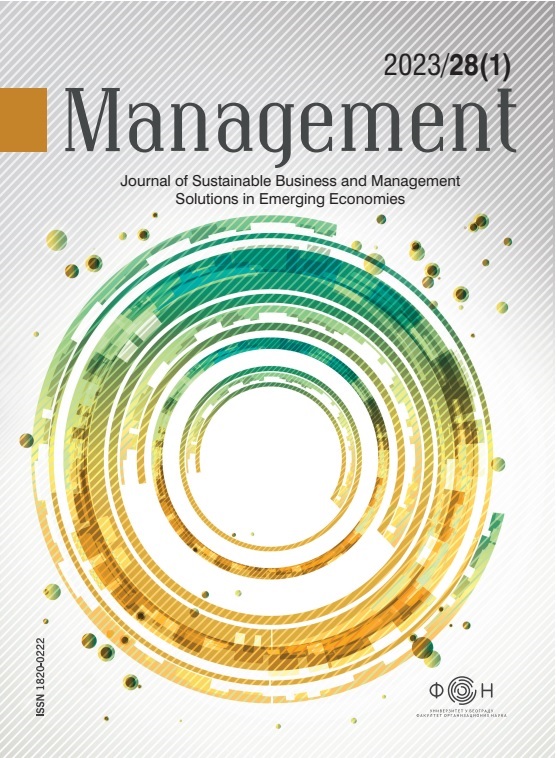Performance of Social Pillar-Based Portfolio in Developing Capital Market
Performance of Social Pillar-Based Portfolio in Developing Capital Market
Author(s): Jovica Stanković, Ksenija Denčić-Mihajlov, Jelena Stanković, Evica PetrovićSubject(s): Economy, Business Economy / Management
Published by: Fakultet organizacionih nauka Univerziteta u Beogradu (FON)
Keywords: socially responsible investing; social performance disclosure index; social pillar; portfolio diversification; emerging markets; data mining; clustering
Summary/Abstract: Research Question: This study examined the preconditions and efficiency of socially responsible investing (SRI) in the developing capital market, specifically the Belgrade Stock Exchange (BSE). Motivation: Considering the increasing trend of SRI (GSIA, 2020) and importance of information on corporate social responsibility (CSR) to investors (Miralles‐Quiros, Miralles‐Quiros, & Arraiano, 2017), especially on social issues (Giese, Nagy, & Lee, 2021), we explored the influence of applying the social criteria in asset selection on investment portfolio performance at the BSE. This study builds on the existing literature that is mostly focused on developed capital markets of Europe, the United States and Canada (Von Wallis & Klein, 2015) by analysing the issue of SRI in the developing market. The provided setup for socially driven portfolio structuring based on market trends and social performance disclosure proved to be efficient in the long-term. Idea: The core idea of this paper was to analyse the terms for SRI and empirically evaluate the performance of social pillar-based portfolio on the BSE in order to provide evidence to support the trend of SRI in developing markets. The structure of the portfolios was set using the best-in-class strategy, while the classes were determined on the basis of the stocks’ return trends. Data: The analysis was conducted using trading data and information from financial and non-financial reports of the companies listed on the BSE. Tools: Cluster analysis was used for classification of stocks, while performances of portfolios were evaluated implementing return, volatility and risk-adjusted measures. Findings: The social pillar-based portfolio outperformed the conventional one and benchmarking indices in the observed five-year period. However, mixed results were obtained in the short-term indicating that specific effects of CSR practice on financial performance of the companies in observed developing market could still be obscured. Contribution: This paper expands the existing research related to SRI in the developing markets and offers practical recommendations for potential socially conscious investors.
Journal: Management: Journal of Sustainable Business and Management Solutions in Emerging Economies
- Issue Year: 28/2023
- Issue No: 1
- Page Range: 31-42
- Page Count: 12
- Language: English

